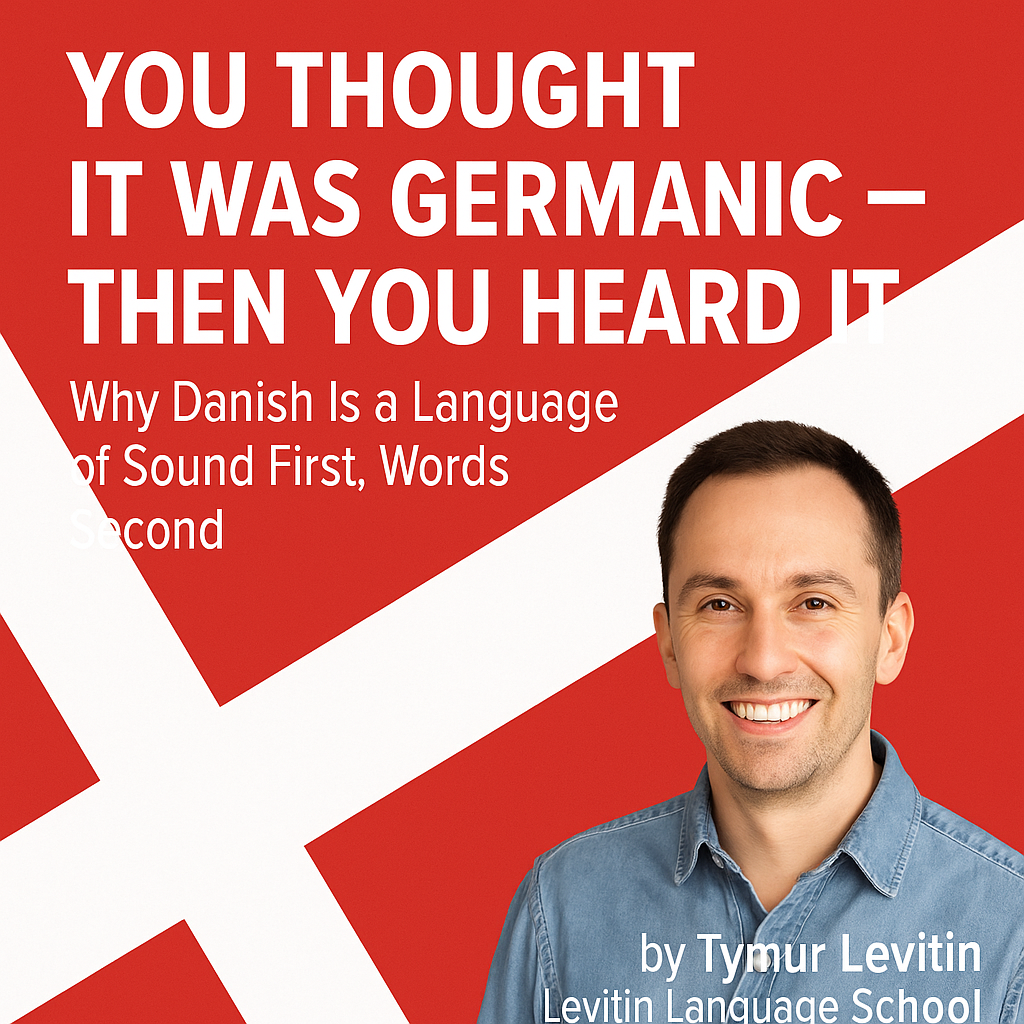Words You Know — Meanings You Don’t
Three phrases. Five cultures. One big misunderstanding.
At Levitin Language School, we teach languages not just through vocabulary — but through logic, emotion, and identity. And praise is one of the most culturally loaded elements in language.
What’s the Big Deal?
Many students ask:
- How do I say “Good job!” in Russian?
- Is “You’re amazing” appropriate in German?
- Why do Americans say “Well done” for everything?
The answers depend on who you are, where you liveі what you mean.
Because compliments are never just compliments.
They’re signals of culture, emotion, status — and even distance.
English: Easy, Encouraging, Often Empty
In English, praise is frequent, light, and often used as social glue.
You’ll hear:
- “Good job!”
- “Well done!”
- “You’re amazing!”
- “That’s awesome!”
- “Nice work!”
These don’t always mean deep admiration. Sometimes, they’re just a rhythm of encouragement — a way to be polite, friendly, or motivating.
Even children hear praise constantly:
“Good job!” — for finishing breakfast.
“You’re awesome!” — for picking up a toy.
In adult settings:
“Well done on the presentation!”
“Great insight!”
“You’re amazing — I couldn’t have done it without you.”
But none of these necessarily reflect deep emotion.
They can be:
- genuine
- polite
- performative
- sarcastic
That’s the beauty — and the danger — of English praise:
It’s flexible. But often, it’s superficial.
Russian: Emotion First, Then Praise
In Russian, praise carries emotional weight and must match the moment. Saying “Ты потрясающий” (You’re amazing) without real connection may sound fake — or sarcastic.
Common phrases include:
- Молодец — task-oriented, positive, but often used with children
- Хорошая работа — neutral, literal
- Ты меня удивил / удивила - You surprised me — implies respect
- Браво — literary, theatrical
- Это достойно уважения — serious, deep compliment
- Ты крут / ты крутая — slang, casual, often gendered
- Ты потрясающий / потрясающая — used rarely, only with strong emotional intent
Russians value автентичність. Praise is often connected to effort, difficulty, or emotional impact — not just outcome.
Overuse can signal insincerity.
Ukrainian: Sincerity, Not Flattery
In Ukrainian, praise is expected to be purposeful, sincere, and culturally appropriate.
Common expressions:
- Молодець — widely used, encouraging, often for children
- Добре впорався / впоралася — job well done, task-focused
- Це вражає - That’s impressive — respectful, not exaggerated
- Ти мене здивував / здивувала — exceeding expectations
- Це гідно поваги — used in formal or emotional settings
- Ти неймовірний / неймовірна — strong praise, must be justified
- Вау, як круто — modern, expressive, informal
Ukrainian speakers may avoid praise that feels empty або generic.
They expect the compliment to match the effort, tone, and relationship.
Saying “Ти неймовірна” after a small task can sound theatrical or artificial.
German: Precise, Sparse, Professional
Germans are not known for casual praise. Compliments must be earned, specific, and often delayed.
Phrases include:
- Gut gemacht — standard, often for children
- Sehr gute Arbeit — professional
- Ich bin beeindruckt - I’m impressed — sincere
- Das war stark — colloquial, positive
- Respekt! — powerful, but brief
- Du bist großartig / fantastisch — only in emotional or theatrical contexts
- Chapeau! — borrowed, literary or elite register
In German culture, too much praise can feel patronizing.
Understatement is a virtue.
Praise is more about acknowledgment than encouragement.
Spanish: Musical, Warm, Layered
Spanish-speaking cultures vary — but they often use praise to express warmth, емоціяі connection.
Common expressions:
- ¡Muy bien! — widely used, all contexts
- ¡Excelente trabajo! — formal or professional
- ¡Eres increíble! - You’re incredible! — expressive, warm
- ¡Qué maravilla! / ¡Qué lindo! — admiration, delight
- ¡Olé! — approval, pride, cultural emphasis
- Me dejaste sin palabras - You left me speechless — poetic, emotional
Latin American Spanish in particular favors expressive praise — but delivery and tone are everything.
Saying “Lo hiciste bien” in a flat tone may sound dismissive.
Saying “¡Increíble!” with a warm smile communicates real admiration.
Translation Trap
Let’s take:
“Good job!”
You might think it’s a universal phrase.
But try saying it literally in another language, and you might get:
- Russian: “Хорошая работа” — sounds flat or sarcastic
- Ukrainian: “Добра робота” — odd without context
- German: “Gute Arbeit” — acceptable, but not warm
- Spanish: “Buen trabajo” — fine, but depends on tone and context
Words don’t carry the same emotional tone across borders.
That’s why “You’re amazing” may sound:
- patronizing in German
- theatrical in Ukrainian
- over-the-top in Russian
- perfectly fine in American English
What We Teach Instead
At Levitin Language School, we teach students to:
- Read the emotional context
- Choose compliments that fit the culture
- Use praise that matches the relationship
- Understand what words feel like — not just what they mean
Because compliments aren’t just words.
They’re cultural codes.
Coming Soon in This Series:
Amazing vs Amazable — why some compliments don’t cross borders.
(A future article in this series.)
🔗 Related Posts from Our Blog:
- Thank You, Thanks, Thanks a Lot
- I Love You Doesn’t Mean What You Think
- Real Language Is Never Literal
- Grammar Is How We Think
📘 Series:
Words You Know — Meanings You Don’t
Explore how familiar words carry unfamiliar meanings across languages and cultures.
👤 Author:
By Тимур Левітін
Founder, Director, and Senior Instructor at Levitin Language School
© Тимур Левітін. Всі права захищені.






















